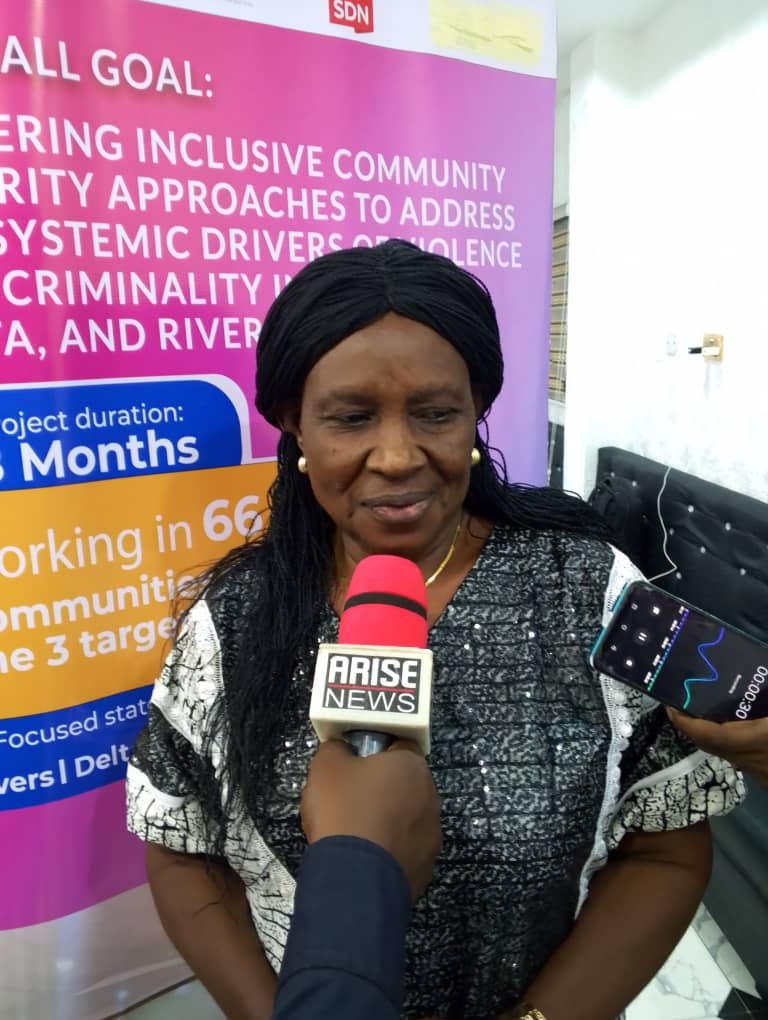Non-inclusivity has been identified as one of the major drivers of conflict in the Niger Delta region.
This was disclosed by Victor Baba Okpanachi, Lead Consultant at Search for Common Ground, a European Union-assisted Non-Governmental Organization (NGO) focused on transforming criminality and violence in the Niger Delta through a community-centred approach.
Speaking in Yenagoa during a three-day refresher training for community leaders, Okpanachi emphasized that non-inclusivity remains a core factor fuelling unrest in the region.
He said this is why the NGO has been organizing a series of trainings for relevant stakeholders to ensure everyone is included in the decision-making processes within their communities.
Okpanachi said: “Non-inclusivity is a core driver of conflict in the Niger Delta. Women, youths, and even the physically challenged are saying they are not being carried along. It is a key factor that has hindered the region’s development in terms of infrastructure and other areas.
“It is a major issue.
“Youths, in particular, have said it’s one of the reasons they turn to drugs and suffer depression—because they are excluded from decision-making and day-to-day affairs in their communities.
“That is why we engage them, so they can return to their communities and engage their leaders. This process is already transforming communities and the people within them.”
Okpanachi also taught participants how to identify conflicts and analyze their root causes.
He emphasized the importance of understanding the people involved their backgrounds, beliefs, and motivations.
He said: “Culture, religion, and the society one lives in all shape how people view and address issues. Upbringing and religious beliefs influence how individuals react and interact with others.”
He added that Search for Common Ground, with support from the EU and other partners, has been addressing the systemic drivers of conflict in the region:
“To truly transform conflict, we had to go to its root causes. That’s why we first trained youth leaders—because youths are often the main actors in conflict and violence. Older people lack the physical capacity to engage in violence, but youths are active participants.
“So we focused on changing their mindsets. We also listened to them. Both women and youths complained about being excluded from community leadership, and that’s a major issue we’re addressing.”
Also speaking, John Paul Okoye from the Early Warning Response Department of Search, said the refresher training aimed to retrain community leaders as agents of change.
“We train and build their capacity so they can foster peaceful coexistence within their communities,” he said.
“This training teaches them to approach conflict from a win-win perspective, rather than the common win-lose mindset found in many communities.”
According to Okoye, the training also covered inclusive leadership, conflict transformation, empathy, and how to resolve local issues constructively.
“Rather than approaching conflict with an adversarial mindset, the training equips leaders to collaborate and ensure that everyone—including women, youths, and marginalized groups—is heard and included in decision-making.”
Keng Keng Ati, Capacity Building and Training Officer at Search for Common Ground, said the training focused on inclusive leadership and conflict transformation for community leaders across Bayelsa State.
“We’re equipping them with fresh skills and reinforcing what they already know. When leadership is inclusive, people tend to act less adversarially and are more accepting of decisions when they’re part of the process,” he said.
He added that the goal is to involve youths, women, security personnel, and law enforcement in addressing the drivers of criminality and violence in the Niger Delta.
“We expect the participants to return to their communities and act in ways that build peace, promote collaboration, and encourage fairness in decision-making.”
Seiyefa Otuogha, a female leader from Nedugo Community and a participant, said she learned about early warning and response mechanisms.
“You shouldn’t wait until a problem escalates. Once you see the signs, act immediately to resolve the issue,” she said.
She highlighted land disputes and peer pressure as major causes of conflict and stressed the need to monitor children more closely.
She also raised concerns about herders-farmers clashes: “Our cassava farms are constantly destroyed by herdsmen, especially in Etelubu, Nedugo, and across Yenagoa. They even have shelters there and vandalize our crops at night. This must stop. We return home empty-handed after working hard on our farms.”
Another participant, Igonia Dakolo, the Paramount Ruler of Gbarantoru Community, said: “This training has broadened my knowledge on conflict resolution. I’ll now use modern techniques to ensure peace in my community. Sometimes, you have to let go for peace to reign—it’s about finding win-win solutions.”
Recall that the 18-month programme, which ends this month, is part of the Community-Centred Approach to Transforming Criminality and Violence in the Niger Delta Project by Search for Common Ground, a peacebuilding NGO.
















